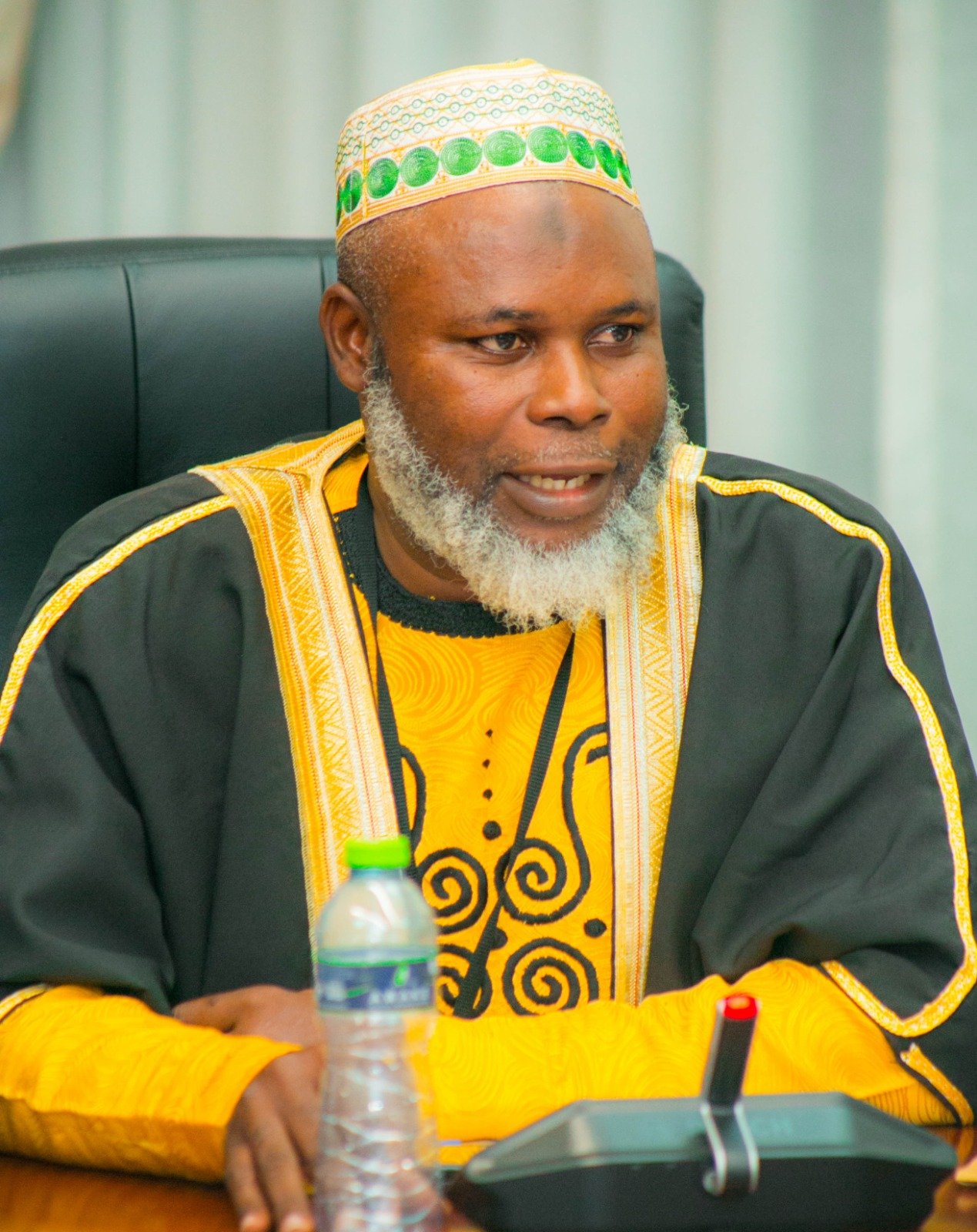Fruitful Living
20 ways to love God with all your heart, soul, mind and strength (Part 1)
“The most important one,” Jesus answered, “is this: ‘Hear, O Israel: The Lord our God, the Lord is one. Love the Lord your God with all your heart and with all your soul and with all your mind and with all your strength.’ The second is this: ‘Love your neighbour as yourself.’ There is no commandment greater than these” – Mark 12:29-31
INTRODUCTION
The Lord our God is the One and only LORD and we must love Him with all our heart, all our soul, all our mind, and all our strength. Our Lord Jesus Christ was quoting from Deut. 6:4-5 “Listen, O Israel ! The LORD is our God, the LORD alone . And you must love the LORD your God with all your heart, all your soul, and all your strength.” whenHe answeredone of the teachers of the law as quoted above. Jesus said that loving God with all of ourselves is the first and greatest commandment. This command, combined with the command to love your neighbour encompasses all the other Old Testament laws. God’s very essence is love; when we love one another, we are fulfilling God’s most fundamental wish for our lives. We shall therefore love the Lord our God, and always keep His charge, His statutes, His ordinances, and His commandments.
Here are the first 10 things we need to do to obey these commandments of Jesus.
- UNDERSTAND WHAT LOVE IS FROM A BIBLICAL PERSPECTIVE.
The word “love” has several meanings and, as such, can be applied to different situations. For example, there is the kind of love between a mother and her child, between friends, the romantic love between a man and a woman, etc. When we talk about the great love that Jesus referred to, some Scripture references translate it as “steadfast love.” It is “perfect love,” “covenant love,” “authentic love,” and “unconditional love.” Note that biblical love is not only a feeling because feelings come and go. Such love comes from who God is 1 John 4:8, and it is practical 1 John 3:1, 4:9-10. So, biblical love is a decision to act that love from a deep affection towards God.
- ACKNOWLEDGE OUR DEPENDENCE ON THE HOLY SPIRIT
We need to admit our inability to fulfill the great commandment of loving God by ourselves. The sinful nature of humans makes it impossible for any of us to love like that. We depend on God to be able to love because He is love 1 John 4:8. We can only love Him because He loved us first 1 John 4:19. Love is part of the fruit of the Spirit Galatians 5:22-23, so only through the Holy Spirit can we truly love God and our neighbour as the Word of God commands us to Mark 12:29-31. Therefore, we need to pray and ask His help to develop His love in our lives.
- LOVE GOD WITH ALL OUR HEART
Jesus’s words from the good answer He gave to the scribe about the great commandment are a quote from Deuteronomy 6:4-5. It starts by telling us to love God with our whole hearts. Our contemporary culture understands the “heart” as the centre of emotions, but the Jewish culture in Jesus’s times understood it as more than that. For them, the heart of man was the centre of His will as we read Proverbs 4:23. “Above all else, guard, for it is the wellspring of life.”
We can think of the heart as the place of our spiritual life, thoughts, feelings, motivations, reason, and understanding. Our decisions, our morals, and our will come from it. So, loving God with all our heart is to have a strong desire and will towards Him.
- LOVE GOD WITH ALL OUR SOUL
God’s Word also tells us to love our Heavenly Father with our whole soul. The Hebrew word for “soul” gives the idea of the breath of life. The Greek word gives a more global idea of the inner self, the individual, the mind (in the sense of our deep thoughts). We can say that it is the non-physical part of the human as we read Psalm 16:10; Ezekiel 18:4.
It is what defines our personality, who we are. So, loving God with our whole soul is to love Him with everything we are, is to find our inner self inclined to Him, seeking Him and having Him at the centre of our affections
- LOVE GOD WITH ALL OUR MIND
God’s people must also love Him with their whole minds. The biblical meaning of “mind” is the intellect. The original Hebrew text of Deuteronomy 6:4-5 doesn’t include “mind,” it was considered by the Jewish culture part of the soul. This part of the great commandment shows how important it is that our intelligence is submitted to God and finds satisfaction in obeying Him. Romans 12:2 reminds us that we need to be transformed by the renewal of our minds to be able to test and approve God’s will – that is how we can love God with our whole minds.
- LOVE GOD WITH ALL OUR STRENGTH
Jesus Christ also told us to love our God with our whole strength. We find the word “strength” in the Bible a lot of times, and most of them refer to the power of God. Strength refers to the physical aspect of loving God. It is how we show that we love Him and do everything we can to put our love for God into action. If our inner motivation and desire are to love God, our actions (the strength of our bodies) will show it.
- LOVE JESUS ABOVE EVERYONE AND EVERYTHING ELSE
Christ Jesus told His disciples that anyone who wanted to follow Him must love Him more than everything and everyone else Matthew 10:37; Luke 14:26. It doesn’t mean that we won’t love other people, on the contrary. Only by loving Him can we truly love others. But if we love something or someone more than God (Father, Son, and Holy Spirit), it is idolatry. The Bible says that the Lord is a jealous God Exodus 20:4-5; Deuteronomy 4:24, which means that He requires that our affections be placed correctly, that is, on Him. Nothing should have a higher place in our affections than God.
- LOVE GOD WITH PRACTICAL ACTIONS
We must keep in mind that biblical love is not only about feelings. When we read how God expressed His love for us in the well-known verse of John 3:16, we see that God did something for us – He gave His Son to die for us so we could have eternal life. There is no greater love than that John 15:13. So, when we love someone, we do something about it. Biblical love is action, not only feelings. Therefore, we need to learn how to put our love for God into practice. We do that by obeying His word.
- OBEY GOD’S COMMANDS
In a short definition, we can say that loving God is to obey His commandments John 14:15; 1 John 5:3. The Lord Jesus questioned the people who called Him “Lord” but didn’t do what He had told them to do Luke 6:46. If He is the Lord of our lives, it means that He has ultimate authority over us, so we do what He tells us to do. It is simple, but it is not easy because our sinful nature fights against it (the apostle Paul explained how that works in Romans 7:14-25). That’s why we need His help to obey Him and make Him the Lord of our lives.
- LOVE OUR NEIGHBOUR
When Jesus said that we must love God with our whole being, He added that we must love our neighbour as we love ourselves, Mark 12:31, quoting from Leviticus 19:18. The apostle Paul wrote that this commandment fulfills the whole Law of God from the Old Testament Galatians 5:14. God shows grace and expresses His love for the creation by giving good things to everyone every single day, no matter if they are evil or good as we read Matthew 5:43-46; James 1:17. As children of God, we should do the same. We express our love for God by obeying and imitating Him. So, we must love other people, even if they don’t deserve it – that’s what God does for every single person every day. In practical terms, we love others by doing to them what we would have them do to us, even if they don’t, as read in Matthew 7:12 –“So in everything, do to others what you would have them do to you, for this sums up the Law and the Prophets.”
To be continued!
The greatest commandment of all time teaches us that the first thing we need to learn in our Christian life is to love God with our whole being. This important commandment of God requires total commitment to Him and a decision of the will from the children of God to accomplish it.
If you have not yet confessed to Jesus as your Lord and personal Saviour, this is an opportunity to do so. And when you do, just surrender totally to Him with your eternal future, for He will never leave nor forsake you – Hebrews 13:5
STAY BLESSED!
For further inquiries please contact us on Tel Nos. 0243588467 or 0268130615
Email: saltnlightministries@gmail.com
Website: saltandlightministries.org
Dr Joyce Aryee, the author
Fruitful Living
Institution of Marriage in Islam (Pt.3)

Regarding sexual intimacy, it is also prohibited for a wife to demand money or gifts before allowing her husband to engage in sexual relations. Islam views this as a form of exploitation and sin. A marital relationship must be based on mutual love, respect, and affection rather than material gain.
Prohibition of sexual intercourse during menstruation
Islam has clear guidelines regarding sexual relations during certain times, particularly when a woman is menstruating. The Qur’an prohibits sexual intercourse during menstruation, stating:
“And they ask you about menstruation. Say: ‘It is harm, so keep away from women during menstruation. And do not approach them until they are pure. And when they have purified themselves, then come to them from where Allah has ordained for you. Indeed, Allah loves those who are constantly repentant and loves those who purify themselves’” (Qur’an 2:222).
This verse emphasises the importance of refraining from sexual activity during menstruation due to physical and spiritual reasons. However, all other forms of affection and companionship are allowed, and husbands should continue to care for their wives during this time with love and respect.
Islamic law encourages cleanliness and personal hygiene, especially in matters related to physical intimacy. After the menstruation period ends, it is recommended that the wife perform ghusl (ritual purification) before resuming sexual relations with her husband.
Rights of Children on Parents
Islam emphasises the rights of children on their parents, as marriage is the foundation of family life. Parents are obligated to provide their children with proper care, education, and moral guidance. The Qur’an states: “O you who have believed, protect yourselves and your families from a Fire whose fuel is people and stones…” (Qur’an 66:6).
This highlights the parents’ responsibility to raise their children with a strong sense of morality and faith. Children have the right to a good name, religious upbringing, and education, and they must be treated with fairness and love.
In Ghana’s law, there is Children’s Right Act, Act 560 (1989) which states among other things,
• Section 4, Right to Name, Nationality and secure a Birth Certificate for the child
• Section 6(3) (a&b), protection from neglect, provide good guidance, care etc
• Section 8(1&2), Right to education and wellbeing (medical care, diet, clothing, shelter).
How Do Married Couples Resolve Their Differences in Islam?
Islam provides clear guidelines for resolving marital conflicts in a just and compassionate manner.
The Qur’an instructs that in the event of marital discord, both parties should seek reconciliation:
“If you fear dissension between the two, send an arbitrator from his people and an arbitrator from her people. If they both desire reconciliation, Allah will cause it between them” (Qur’an 4:35).
The goal is always to preserve the marriage and restore harmony. If reconciliation is not possible, Islam permits divorce as a last resort, but it is considered the most disliked permissible act in the eyes of Allah (SWT).
Rewards of Marriage in Islam
Marriage in Islam is not only a social institution but also an act of worship that brings great rewards. The Prophet Muhammad (PBUH) said: “When a man marries, he has fulfilled half of his religion, so let him fear Allah regarding the remaining half” (Bayhaqi, Shu’ab al-Iman).
Married couples are rewarded for fulfilling their marital responsibilities, showing kindness to each other, and raising righteous children who contribute positively to society.
Scholarly Thoughts About Marriage in Islam
Islamic scholars, such as Imam Al-Ghazali, have discussed marriage as a means of controlling desires and fulfilling one’s spiritual obligations. Modern scholars like Sheikh Yusuf Qaradawi also stress the importance of mutual respect and understanding in marriage, ensuring that both partners can grow spiritually and emotionally within the marriage.
Conclusion
In conclusion, marriage in Islam is a divinely ordained relationship based on mutual love, respect, and responsibility. By following the guidance of the Qur’an and Sunnah, and observing the legal frameworks in place, such as Ghana’s Mohammedan Ordinance, we can establish strong and harmonious marriages that contribute to the moral and spiritual development of society. May Allah (SWT) guide us to fulfill our marital responsibilities with sincerity and love.
The Writer is Kpone Katamanso Municipal Chief Imam, Democracy and Governance Law Student, UCC, Member of Ghana National Association of Certified Counsellors Certified by Ghana Psychology Council
References:
1.Qur’an, Surah Ar-Rum (30:21)
2.Qur’an, Surah An-Nisa (4:34, 4:4, 4:19, 4:35)
3.Qur’an, Surah Al-Baqarah (2:187, 2:221, 2:222, 2:223)
4.Qur’an, Surah At-Tahrim (66:6)
5.Ibn Majah, Hadith 1845, 1905
6.Tirmidhi, Hadith 1162, 1084
7.Bukhari, Hadith 5090
8.Children’s Right Act, Act 560 (1989)
9.Bayhaqi, Shu’ab al-Iman
10.Al-Ghazali, Ihya Ulum al-Din
11.Qaradawi, The Lawful and Prohibited in Islam
Fruitful Living
Adansi North DCE marks birthday on Farmers’ Day

It was a momentous day for the Adansi North District Chief Executive, Eric Kwaku Kusi, last Friday November 8, as the 40th National Farmers Day district level celebration held here at Adansi Adokwai coincidentally fell on his birthday.
On a low-key, Mr Kusi momentarily took to the floor, to exhibit his dancing skills responding to cheers of “Happy Birthday to you” from the audience, to which he also responded with a gesture of thanks and praises to God, as he stepped out to address the gathering.
He was joined on the dancing floor by the assembly members singing praises to God for the life of their indefatigable DCE.
In his address, Mr Kusi commended farmers in the Adansi North and the country as a whole “who tirelessly cultivate the land to feed all of us in our communities.”
He said the government realising the important role agriculture played in the economy and the challenges facing farmers due to the effects of climate change was rolling out initiatives and policies to support climate-resilient agriculture, including agriculture insurance programme for farmers.
In all 16 farmers were awarded various prizes for their contribution to food sufficiency in the country.
Francis Appiah, 41, who hails from Adokwai was adjudged the District Best Farmer for 2024, and took home a tricycle and other assorted items. The first runner-up prize went to Sakyi Kwabena also from Adokwai and the second runner-up went to Kwame Gyamera from Dompoase.
From Alhaji Salifu Abdul-Rahaman, Adansi Adokwai







